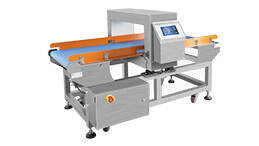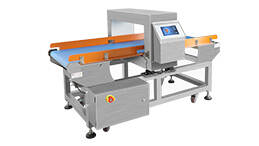Email format error
Email cannot be empty
Email already exists
6-20 characters(letters plus numbers only)
The password is inconsistent
Email format error
Email cannot be empty
Email does not exist
6-20 characters(letters plus numbers only)
The password is inconsistent


Unveiling the World of Metal Detector Supplies: A Treasure Hunter's Dream
Have you ever dreamed of finding hidden treasures or unearthing a piece of history buried beneath the ground? Metal detecting can make that dream a reality. Whether you’re a seasoned treasure hunter or a novice explorer, having the right "metal detector supplies" is crucial for a successful and enjoyable adventure. This blog will delve into the essentials of metal detector supplies, offering insights, tips, and a touch of excitement to get you ready for your next hunt.
The Heart of Treasure Hunting: Metal Detectors
The most critical piece of equipment in your arsenal is, unsurprisingly, the metal detector itself. Metal detectors come in various models, each tailored to different types of treasure hunting. For beginners, entry-level detectors are easy to use and relatively affordable. These detectors are great for finding coins, jewelry, and small artifacts in parks or beaches. As you gain experience, you might want to upgrade to a more advanced model with better depth sensitivity and discrimination features, allowing you to distinguish between valuable metals and junk.
Essential Metal Detector Supplies
1. Headphones
A good pair of headphones is a game-changer. They help you hear faint signals that you might miss if you were relying solely on the detector's built-in speaker. Look for headphones that are comfortable, durable, and have a volume control feature. Noise-canceling headphones can also be beneficial if you’re detecting in a noisy environment.
2. Pinpointer
A pinpointer is a handheld device that helps you zero in on your target once the metal detector has done its job. It saves you a lot of time and effort by narrowing down the exact location of the buried object, making retrieval faster and more efficient. Some pinpointers are even waterproof, allowing you to search in shallow water.
3. Digging Tools
Having the right digging tools is essential. A sturdy digging trowel and a small shovel will help you extract your finds without damaging them. Some treasure hunters prefer a digging tool with a serrated edge for cutting through roots and tough soil. Don’t forget to carry a finds pouch to store your discoveries safely.
4. Coil Covers
Protecting your metal detector's search coil with a coil cover is a wise investment. The search coil is the part of the detector that sweeps over the ground, and it can get scratched or damaged over time. A coil cover helps prevent wear and tear, extending the life of your detector.

Accessorizing for Success
5. Sand Scoop
For beachcombers, a sand scoop is indispensable. These scoops are designed to sift through sand quickly, making it easier to find small items like coins and jewelry. Some sand scoops come with long handles, so you don’t have to bend over, saving your back from strain.
6. Finds Bag
A finds bag, worn around your waist, is perfect for storing your treasures as you hunt. Look for one with multiple compartments to separate valuable finds from trash. Some bags even have a mesh bottom to let sand and dirt fall through.
7. Batteries and Chargers
Always carry spare batteries or a portable charger for your metal detector. There’s nothing worse than running out of power in the middle of a promising hunt. Rechargeable batteries can be a cost-effective and environmentally friendly option.
Preparing for the Hunt
8. Maps and Research
Before heading out, do some research on your chosen location. Historical maps can provide clues about where to find old coins and artifacts. Websites and forums dedicated to metal detecting can also offer valuable tips and information about productive hunting grounds.
9. Weather Gear
Dress appropriately for the weather. A hat, sunscreen, and water bottle are essential for hot days, while a raincoat and waterproof boots will keep you comfortable in wet conditions. Remember, metal detecting is an outdoor activity, so being prepared for the elements is crucial.
Tips for a Successful Metal Detecting Adventure
1. Patience is Key: Metal detecting requires patience. Not every beep or signal will lead to a treasure, but persistence pays off.
2. Practice Makes Perfect: Spend time practicing with your detector to understand its signals and features. The more familiar you are with your equipment, the more successful you’ll be.
3. Respect the Environment: Always fill in your holes and take any trash you find with you. Respecting nature ensures that metal detecting remains a positive and accepted hobby.
4. Join a Community: Consider joining a metal detecting club or online forum. Sharing your experiences and learning from others can be incredibly rewarding.
The Thrill of Discovery
Metal detecting is more than just a hobby; it's a way to connect with history and the environment. Each find, whether it's an old coin, a piece of jewelry, or a historical artifact, tells a story. The excitement of discovery, combined with the anticipation of what might be just beneath your feet, makes metal detecting a thrilling and addictive pursuit.
Investing in quality "metal detector supplies" enhances your treasure hunting experience, making it more efficient and enjoyable. From the essential metal detector to the handy pinpointer and sturdy digging tools, each piece of equipment plays a vital role in your success. So gear up, head out, and let the adventure begin. Who knows what treasures you’ll uncover next?
Happy hunting!

